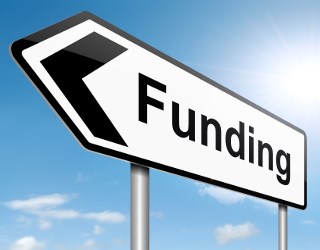 Retail
IC/PNG/015-2022 Consultancy: Climate-Gender-Conflict Baseline Study
Retail
IC/PNG/015-2022 Consultancy: Climate-Gender-Conflict Baseline Study
IC/PNG/015-2022 Consultancy: Climate-Gender-Conflict Baseline Study
IC/PNG/015-2022 Consultancy: Climate-Gender-Conflict Baseline Study has been closed on 22 Feb 2022. It no longer accepts any bids. For further information, you can contact the United Nations Development Programme
Bellow, you can find more information about this project:
Location: Papua New Guinea
General information
United Nations Development Programme
Retail
Closed
Timeline
08 Feb 2022
22 Feb 2022
Not available
Contacts
Description
| IC/PNG/015-2022 Consultancy: Climate-Gender-Conflict Baseline Study | |||||||||||||||||||||||||||||||||||||||||||||||||||||||||||||||||||||||||||||||||||||||||||||||||
|---|---|---|---|---|---|---|---|---|---|---|---|---|---|---|---|---|---|---|---|---|---|---|---|---|---|---|---|---|---|---|---|---|---|---|---|---|---|---|---|---|---|---|---|---|---|---|---|---|---|---|---|---|---|---|---|---|---|---|---|---|---|---|---|---|---|---|---|---|---|---|---|---|---|---|---|---|---|---|---|---|---|---|---|---|---|---|---|---|---|---|---|---|---|---|---|---|---|
| Procurement Process : | IC - Individual contractor | ||||||||||||||||||||||||||||||||||||||||||||||||||||||||||||||||||||||||||||||||||||||||||||||||
| Office : | UNDP Papua New Guinea, Country Office - PAPUA NEW GUINEA | ||||||||||||||||||||||||||||||||||||||||||||||||||||||||||||||||||||||||||||||||||||||||||||||||
| Deadline : | 22-Feb-22 | ||||||||||||||||||||||||||||||||||||||||||||||||||||||||||||||||||||||||||||||||||||||||||||||||
| Posted on : | 08-Feb-22 | ||||||||||||||||||||||||||||||||||||||||||||||||||||||||||||||||||||||||||||||||||||||||||||||||
| Development Area : | OTHER | ||||||||||||||||||||||||||||||||||||||||||||||||||||||||||||||||||||||||||||||||||||||||||||||||
| Reference Number : | 87933 | ||||||||||||||||||||||||||||||||||||||||||||||||||||||||||||||||||||||||||||||||||||||||||||||||
|
Link to Atlas Project : 00138067 - Preventing Climate-Induced Conflicts | |||||||||||||||||||||||||||||||||||||||||||||||||||||||||||||||||||||||||||||||||||||||||||||||||
|
Documents :
Annex 1_Terms of Reference Annex 2_General Conditions of Contract - IC Annex 3_Offerors Letter & Financial Proposal Annex 4_P11 ICs Form | |||||||||||||||||||||||||||||||||||||||||||||||||||||||||||||||||||||||||||||||||||||||||||||||||
Overview :
Background The trajectory of violent conflict in Papua New Guinea’s Southern Highlands and Hela provinces over the last 30 years is concerning. As of end 2017, there were anecdotally 40 separate ongoing internecine conflicts across Hela Province which had led to more than 300 deaths and an estimated 100,000 people displaced without accounting for the extent of human rights abuses including gender-based violence and sorcery accusation-related violence and the entrenched marginalization of women and youth. Exacerbated by weak local governance, these conditions pose a multi-dimensional challenge to economic and human development in both provinces. This highly fragile situation places incredible pressure on the realization of human rights, social and structural stability, and human development. Compounding this situation, women in the Highlands are particularly exposed to disproportionate and increasing risk of climate-induced conflicts due to their community roles coupled with heightened vulnerability of local communities arising from climate change and variability. Through the climate-gender-conflict nexus, UNDP (as lead agency) and IOM will jointly implement gender-transformational conflict prevention interventions that aim to empower women leadership in climate-induced conflict prevention to reduce the risk exposure of vulnerable local communities. The 18-month PBF/GYPI-funded project (“GYPI Highlands project”) implemented within the framework of the UN’s Highlands Joint Programme (HJP) will empower women leaders as conflict-sensitive community resilience activists through training, sharing best practices, while strengthening inclusive peacebuilder networks advances gender equality. While focused on women’s empowerment, men will also be engaged as well to address women’s needs. Particular attention will be paid to communicating women’s rights, their access to information resources as well as inclusion and leadership in community decision-making. Targeting high-risk communities, the project will leverage on empowered women leadership to support the enhancement of community resilience in confronting climate shocks while reducing the risk of climate-induced conflicts through the facilitated development of enhanced Community Peace for Development Plans (CPDP) as well as the implementation of priority aspects of individual CPDPs. The project will also be focused on addressing knowledge gaps within the climate-gender-conflict nexus given the recent emergence of such an approach within the prevention agenda with the aim of integration with development of local and provincial frameworks through gendered analyses and assessments, and climate and gender-sensitive peace and security strategies. Under the GPYI Highlands project, UNDP’s responsibility includes but is not limited to the implementation of the following project outputs.
The project will indicatively target priority locations in Hela and Southern Highlands provinces as identified by the Highlands Joint Programme, with community-level activities in Hela focused on five priority LLGs of Komo Rural LLG, Hulia Rural LLG, Tagali Rural LLG, Hayapuga Rural LLG, South Koroba Rural LLG while in Southern Highlands, Kagua-Erave, Nipa-Kutubu, and Mendi-Munihu districts have been prioritized. However, target communities will be determined through a joint prioritisation process informed by planned down-scaled provincial and sub-provincial climate risk assessment in both Hela and Southern Highlands provinces. Key Objectives Strong and evidence-based baselines are required for the key indicators to measure the project’s impact and success. UNDP is seeking a national consultant to conduct a baseline study to inform the finalization of the project results framework and set the benchmarks for monitoring the project’s progress against the set indicators. Duties and Responsibilities The baseline study is expected to cover key government and non-government organizations which the project will be engaging with including institutions working in the Hela and Southern Highlands provinces. The Consultant is expected to travel to Hela and Southern Highlands provinces to collect the data as part of his/her field work. It is expected that the consultant works 40 days spread over March and May 2022. The consultant is expected to adopt a research methodology and approach that Includes quantitative survey and semi- structured interviews with key stakeholders i.e., local government officials, civil society and private sector partners and community members. The consultant will also map recent and ongoing conflicts with a focus on environmental stressors and gender dynamics, as well as existing peace processes. Furthermore, the consultant is expected to set up as a case-control study including a survey for qualitative and quantitative data needs as per Highlands Joint Programme results framework. The consultant will be required to undertake the following specific tasks:
Deliverables Under the direct supervision of Project Manager, the Consultant will deliver the following:
Reporting and payment terms The Consultant will work under the direct supervision of UNDP’s Project Manager. Submission of specific deliverables will be completed in accordance with the above schedule unless revised timelines are mutually agreed by UNDP and the Consultant. Acceptance of deliverables will be determined by UNDP’s Project Manager. Milestone payments will be made upon submission and acceptance of specific deliverables. Resources Provided The Consultant shall provide his/her own office productivity equipment (hardware and software) and baseline mobile connectivity. Where specialised logistics is required in-country, the project shall avail as required based on an agreed activity budget to be developed. Education and Experience
Corporate Competencies
Functional Competencies
Evaluation Cumulative analysis The proposals will be evaluated using the cumulative analysis method with a split 70% technical and 30% financial scoring. The proposal with the highest cumulative scoring will be awarded the contract. Applications will be evaluated technically, and points are attributed based on how well the proposal meets the requirements of the Terms of Reference using the guidelines detailed in the table below: When using this weighted scoring method, the award of the contract may be made to the individual consultant whose offer has been evaluated and determined as: a) Responsive/compliant/acceptable, and b) Having received the highest score out of a pre-determined set of weighted technical and financial criteria specific to the solicitation. * Technical Criteria weighting; 70% * Financial Criteria weighting; 30% Only candidates obtaining a minimum of 49 points in the Technical Evaluation would be considered for the Financial Evaluation. Interviews may be conducted as part of technical assessment for shortlisted proposals.
The following documents may be requested:
Lump-sum contracts The financial proposal shall specify a total lump-sum amount, and payment terms around specific and measurable (qualitative and quantitative) deliverables (i.e., whether payments fall in instalments or upon completion of the entire contract). Payments are based upon output, i.e., upon delivery of the services specified in the TOR. To assist the requesting unit in the comparison of financial proposals, the financial proposal will include a breakdown of this lump-sum amount (including travel, living expenses, and number of anticipated working days). Travel All envisaged travel costs must be included in the financial proposal. This includes all travel to for field work. In general, UNDP should not accept travel costs exceeding those of an economy class ticket; should the IC wish to travel on a higher class, they should do so using their own resources. In the case of unforeseeable travel, payment of travel costs including tickets, lodging, and terminal expenses should be agreed upon, between the respective business unit and Individual Consultant, prior to travel and will be reimbursed. Submission Instructions Completed proposals should be submitted to [email protected] with mandatory email subject: Climate-Gender-Conflict Baseline Study on or before 22nd Feb 2022. For any clarification regarding this assignment please write to [email protected] Please be guided by the instructions provided in this document above while preparing your submission. Incomplete proposals and failure to comply with proposal submission instruction will not be considered or will result in disqualification of proposal. UNDP looks forward to receiving your proposal and thank you in advance for your interest in UNDP procurement opportunities. Note: Applications without i) financial offer, ii) P11 form and iii) Documents mentioned under Technical Proposal will NOT be considered for evaluation. Financial proposal should be on provided format (i.e Annex 3- OFFEROR’S LETTER TO UNDP); Firms are not eligible for this consultancy assignment (open only for national individual consultants). Incomplete application will not be considered, it will be disqualified automatically. Please complete the Statement of Health form and submit along with proposal ANNEXES: ANNEX 1- TERMS OF REFERENCES (TOR) ANNEX 2 - INDIVIDUAL CONSULTANT GENERAL TERMS AND CONDITIONS ANNEX 3 - FINANCIAL PROPOSAL TEMPLATE ANNEX 4 – P11 ICs FORM
| |||||||||||||||||||||||||||||||||||||||||||||||||||||||||||||||||||||||||||||||||||||||||||||||||
Receive Daily Tenders and Grants notifications
Subscribe nowFeatured tenders
-
 Tender
01 Mar 2022
Papua New Guinea
Supply, Installation and Commissioning of Printer / Photocopier, RFQ/PNG/005-2022
United Nations Development Programme
Tender
01 Mar 2022
Papua New Guinea
Supply, Installation and Commissioning of Printer / Photocopier, RFQ/PNG/005-2022
United Nations Development Programme
-
 Tender
03 Mar 2022
Papua New Guinea
Consultancy for Operations Support Consultant - IC/PNG/026-2022
United Nations Development Programme
Tender
03 Mar 2022
Papua New Guinea
Consultancy for Operations Support Consultant - IC/PNG/026-2022
United Nations Development Programme
-
, Asia Pacific Economic Cooperation, African Union, Central Bank of West African States - (APEC)04 copy.jpg) Tender
01 Mar 2022
Papua New Guinea
Supply of Office Items for Enga Landscape Project for Wabag, Enga Province Papua New Guinea, RFQ/PNG/004-2022
United Nations Development Programme
Tender
01 Mar 2022
Papua New Guinea
Supply of Office Items for Enga Landscape Project for Wabag, Enga Province Papua New Guinea, RFQ/PNG/004-2022
United Nations Development Programme
Get free access to our Tenders & Grants Database
Our service is free of charge and will always be
Join NowDonors
-
 ASIA-PACIFIC ECONOMIC COOPERATION
ASIA-PACIFIC ECONOMIC COOPERATION
-
 EUROPEAN CENTRE FOR THE DEVELOPMENT OF VOCATIONAL TRAINING
EUROPEAN CENTRE FOR THE DEVELOPMENT OF VOCATIONAL TRAINING
-
 DEVELOPMENT BANK OF SOUTHERN AFRICA
DEVELOPMENT BANK OF SOUTHERN AFRICA
-
 THE SEVENTH FRAMEWORK PROGRAMME (EUROPEAN COMMISSION)
THE SEVENTH FRAMEWORK PROGRAMME (EUROPEAN COMMISSION)
-
 INTERNATIONAL PLANNED PARENTHOOD FEDERATION SOUTH ASIA REGION
INTERNATIONAL PLANNED PARENTHOOD FEDERATION SOUTH ASIA REGION
-
 INTERNATIONAL RENEWABLE ENERGY AGENCY
INTERNATIONAL RENEWABLE ENERGY AGENCY
-
 INTERNATIONAL TRADE CENTRE
INTERNATIONAL TRADE CENTRE
-
 ORGANIZATION FOR SECURITY AND CO-OPERATION IN EUROPE
ORGANIZATION FOR SECURITY AND CO-OPERATION IN EUROPE
-
 UNITED NATIONS SYSTEM
UNITED NATIONS SYSTEM
-
 WORLD FOOD PROGRAMME
WORLD FOOD PROGRAMME